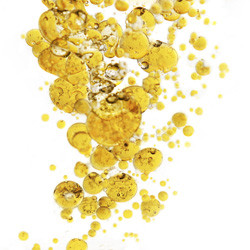High-value bioproducts from waste
The EU-funded BIO-SURFEST(opens in new window) project worked on the semi-industrial scale production of biosurfactants and ester oils using such waste streams. The fermentation process wwas developed to produce biosurfactants and enzymatic catalysis was used to manufacture esters oils. Comprehensive characterisation of waste streams revealed that oil wastes such as waste cooking oil and restaurant grease are the most suitable substrates for producing biosurfactants and ester oils. Other waste streams including olive oil mill wastewater and cheese whey were also investigated for use as raw material. Requirements and specifications for the two biotechnological processes were determined for lab scale production. The biosurfactants should be non-toxic, ethylene oxide-free, sulphate-free, biodegradable, and capable of withstanding extreme conditions of temperature, pH and salinity. Ester oils need to be biodegradable, non-toxic, and compatible with materials like plastics, resins, rubbers and elastomers. Based on market needs, researchers focused on producing biosurfactants such as rhamnolipid and sophorolipid and ester oils such as ethyl esters and monoacylglycerides. After successful validation of fermentative and enzymatic catalysis at lab scale, pilot plants were designed to up-scale production. Process ptimisation and validation followed and bioproducts were produced with good yield and consistent quality. In parallel, the team carried out environmental impact assessment, techno-economic analysis and a life cycle assessment to ensure optimal exploitation of these bioprocesses and bioproducts. Bio-based products were found to be more expensive to produce than their non-bio-based counterparts due to issues with economy of scale and technology maturity. Two main business models were proposed by project partners involving the commercial development of such plants and production of bioproducts'. Safety, non-toxicity and eco-friendliness of these methods and products feature highly in the exploitation strategy. The EU bio-based market is estimated to be worth billions of EUROs and this market is expected to grow. Besides increasing employment opportunities, product and process commercialisation will enhance EU competitiveness in several industrial sectors.







